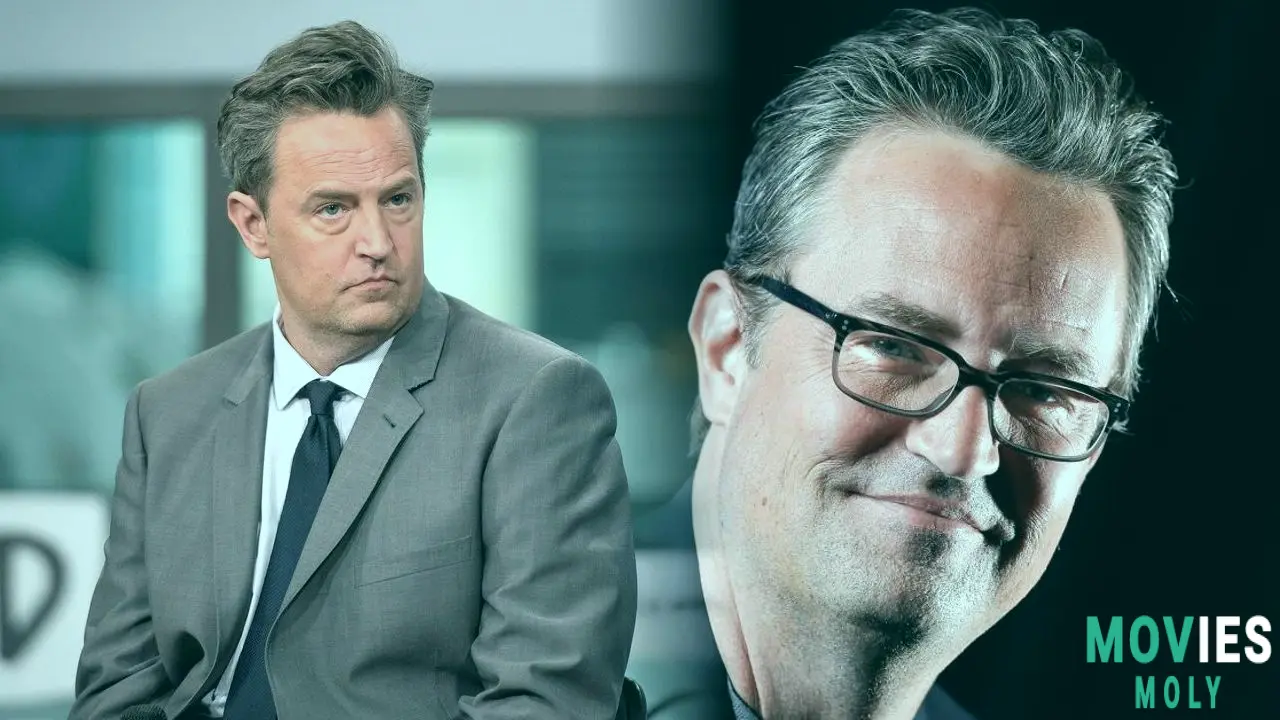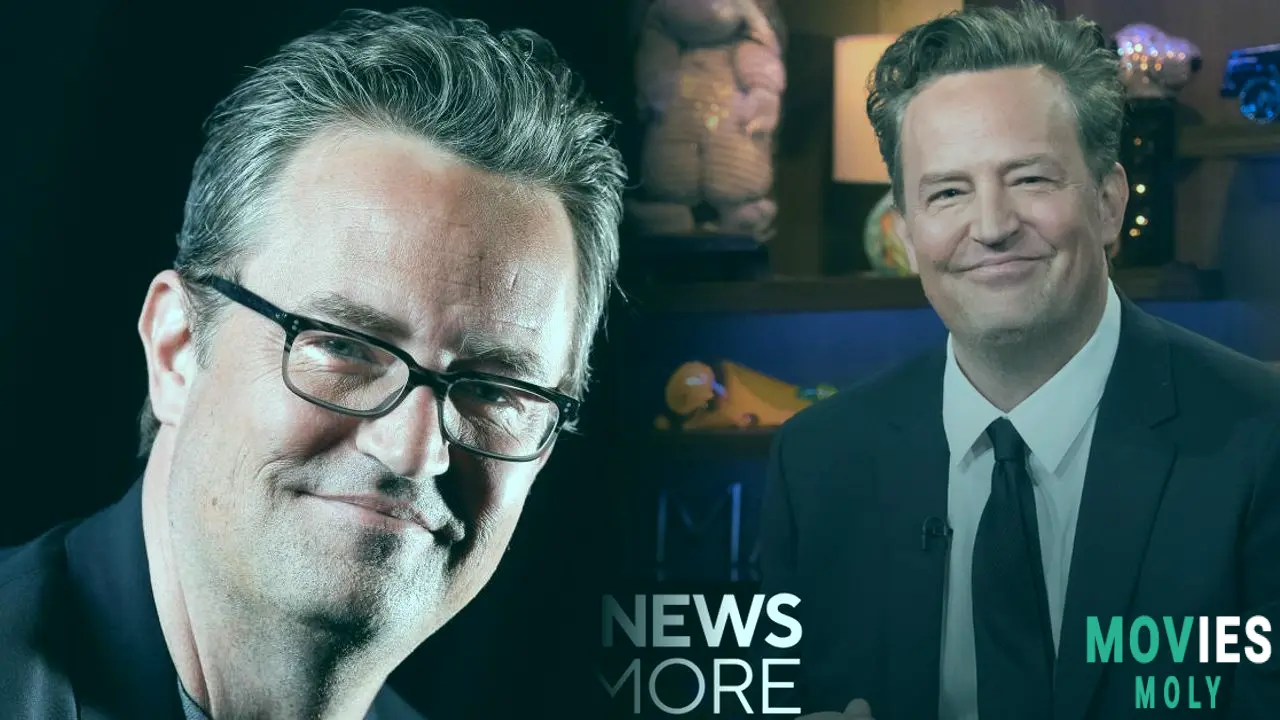Dr. Salvador Plasencia, who played a big role in the inquiry into Matthew Perry's death, admitted to four counts of giving out ketamine. This is a big step forward in the ongoing court case around the Friends star's accidental overdose in October 2023.
Plasencia is the fourth of five people charged in Perry's death to admit guilt. He agreed to drop three more charges of distributing ketamine and two charges of making false records as part of his plea deal. Plasencia could get up to 40 years in prison and a fine of at least $2 million, although he will probably get a shorter sentence.
What Dr. Plasencia's Guilty Plea Means for the Law1. Dr. Salvador Plasencia first said he wasn't guilty, but now he says he is. Debra White, Plasencia's lawyer, said that he is "deeply sorry" for what he did and will to give up his medical license on his own. The lawyer also said that he hoped the case will serve as a warning to other medical practitioners and lead to more severe monitoring of the booming at-home ketamine sector.
Plasencia's plea deal says that he gave Perry 20 vials of ketamine, 100 mg total, as well as ketamine lozenges and syringes, commencing about a month before Perry died. He also said that he had another doctor, Mark Chavez, get the medicine for him. Text communications between Plasencia and Chavez showed that they didn't care about Perry's health, with Plasencia allegedly responding, "I wonder how much this moron will pay."
The story of Matthew Perry shows how important it is to have stricter rules for ketamine treatments at home. We need to focus on stopping more tragedies from happening.
A Closer Look at Matthew Perry's Fight with Addiction

Matthew Perry's problems with drugs and alcohol were well-known throughout his life, even when he was on Friends. In his biography, Friends, Lovers, and the Big Terrible Thing, he talked about his problems openly. He said that drug abuse almost killed him at the age of 49. Perry's death from the immediate effects of ketamine, along with drowning, coronary artery disease, and buprenorphine consequences, brought back to light the hazards of abusing drugs.
The investigation showed that Perry was trying to get the drug illegally while he was getting legitimate ketamine infusion treatments for depression and anxiety.
Matthew Perry's death was a terrible loss, and the ongoing legal processes are a sad reminder of how bad addiction can be.
What you need to know about ketamine: how it's used in medicine and how it's misused

Ketamine is a strong anesthetic and dissociative substance that has been shown to help with mental health problems like sadness and anxiety. In medical settings, it is given under tight supervision and in controlled amounts. However, using illegal ketamine, which is widely bought on the black market, is quite dangerous because the quality is unknown, the doses are not always the same, and it can lead to psychological dependence.
People who use ketamine for fun can mix it with other harmful drugs, which makes the chances of having unexpected adverse effects and overdosing higher. Because there is no medical supervision when drugs are used illegally, users may not know the right doses, which can cause serious adverse effects like hallucinations, high blood pressure, and trouble breathing. Long-term abuse can hurt organs like the bladder, brain, and kidneys.
Important People in the Matthew Perry Case

Five people have been charged in connection with the killing of Matthew Perry. Kenneth Iwamasa, Perry's personal aide, and Dr. Mark Chavez are further defendants who have pled guilty. Erik Fleming, who was a buddy and drug dealer, also pleaded guilty and said he gave Perry the ketamine that killed him.
Iwamasa acknowledged to giving Perry ketamine shots over and over again without any medical training, even on the day Perry died. Chavez, a doctor, acknowledged to providing ketamine to Plasencia. Some of the ketamine came from his old clinic where he used to work.
To really understand the Matthew Perry ketamine case, you need to look past the headlines and think about the bigger concerns of drug trafficking and patient vulnerability.
The Road Ahead: Sentencing and the Other Defendants

Dr. Plasencia is now out on bail, and his sentence is planned for December 3. The only defendant who hasn't made a deal with the U.S. Attorney's Office yet is Jasveen Sangha. The "Ketamine Queen," as she is known, is accused by prosecutors of selling Perry the deadly dose of ketamine. She has pled not guilty, and her trial is set to start next month.
The results of these ongoing court cases will probably have an effect on future conversations about who is responsible in drug distribution instances, especially those that involve medical practitioners.
Dr. Plasencia's guilty plea is a big deal, but the Matthew Perry investigation shows how hard it is to fight addiction and the illegal drug trade.
What we can learn from the Perry case to stop more tragedies in the future

The Matthew Perry case shows how important it is to have better control of at-home ketamine treatments and for doctors to act ethically. Medical professionals stress that ketamine therapy should only happen in regulated clinical settings where vital signs and mental status are constantly watched. The FDA has recommended against using compounded ketamine medications outside of medical settings since they might cause problems like dissociation, breathing problems, and high blood pressure.
The case also brings up the bigger problem of addiction in the entertainment business. Celebrities frequently have a lot of stress, are watched by the public, and have easy access to drugs, all of which can lead to substance abuse. This terrible event is a sad reminder of how bad addiction can be and how important it is to write prescriptions for controlled medications in a responsible way.
The story of Matthew Perry keeps going on. Dr. Plasencia's guilty plea gives some closure, but the discussion about addiction and responsibility needs to go on.






